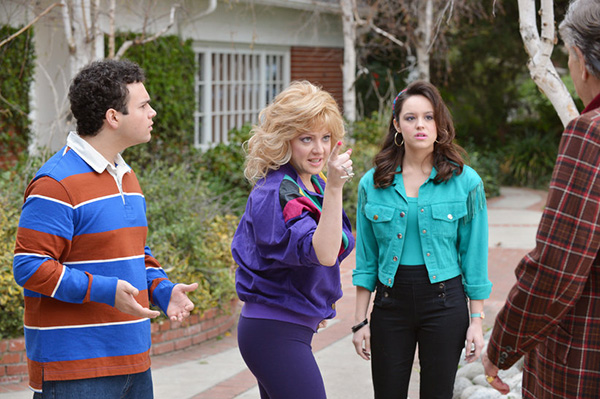
The retro appeal in TV sitcom — as evidenced by the popular series “That ‘70s Show” — has fluctuated over the years. ABC is trying to revive that appeal with “The Goldbergs,” a new comedy set in the 1980s.
Based on writer and co-executive producer Adam Goldberg’s childhood, the show revolves around the daily life of his eccentric and dysfunctional family.
Adam Goldberg (Sean Giambrone), the youngest child of the family, is invested in catching every idiosyncratic moment of his family on camcorder. His older sister Erica (Hayley Orrantia) is a stereotypical teenage girl with a pretty face and self-absorbed attitude, while his older brother Barry (Troy Gentile) is an average 16-year-old boy with a somewhat aggressive temper.
The parents, Murray and Beverly Goldberg, give the family its backbone, to say the least. Jeff Garlin, starring as Murrary Goldberg, plays the stern father, laying down the rules of the house with little room for compromise. He expects his food to be brought to him and the TV to be on when he returns home from work.
Beverly, played by Wendi McLendon-Covey of “Bridesmaids” fame, upholds the image of the all-American housewife — she cooks, cleans, does aerobics and utterly micromanages the members of her family. The first episode reflects on her denial that Adam and Erica are growing up. Their mother he refuses to let them drive, date or participate in any activities that would give them more freedom. As a result, it becomes easy to resent Beverly as the episode plays out.
The pilot also revolves around dramatic, sometimes silly incidents: Grandpa (George Segal) crashing his car into the side of a restaurant, Beverley giving her son a locket for his birthday and Barry causing a town-wide traffic jam. The hijinks don’t bore, but they aren’t particularly unique or captivating either. Unlike “The Big Bang Theory” or “Modern Family,” the jokes are cheesy and simplistic, leaving the audience yearning for more than what’s given. Much of the humor is based on inappropriate language, which, as many comedians assert, is the last resort for a punch line.
The conceit of “The Goldbergs” is strong, and the show could perhaps be more relatable than most, with its basis in real childhood experiences. Stil, it brings nothing new to the table in the family of TV comedies. While retro shows can find an audience, if this one cannot find a more unique voice, it may be best to leave it in the past.
Madison Fraser is a contributing writer. Email her at [email protected].























































































































































